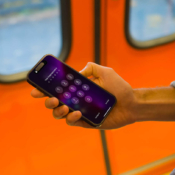In a viral video on TikTok, a visibly devastated mother reveals that her child has spent more than $800 on the popular game Roblox. But it could have been easily avoided if the mother had known about Screen Time. Here are 4 tips.  Gonny van der Zwaag | iCulture.nl – 24 March 2023, 10:30 whatsappfacebooktwittertelegramlinkedinmailprint
Gonny van der Zwaag | iCulture.nl – 24 March 2023, 10:30 whatsappfacebooktwittertelegramlinkedinmailprint
Roblox is a popular game on iPhone and iPad that can keep you busy for hours and spend a lot of money. Fortunately, most parents know how to prevent their children from spending huge amounts on digital extras, for example by setting restrictions or making good agreements. But it can also go wrong. A stressed mom tells TikTok that her child spent $800 on Roblox without her knowing. The 10-year-old son only had the iPhone passcode and did not know the Apple ID password. Still managed to make purchases. The video has now been viewed 4 million times and shows how fascinated people are by this kind of drama.
There have been many stories in the past of children spending thousands of euros because in-app purchases were not blocked. There are also regularly children who manage to circumvent parental supervision. In this case, however, the child used a well-known trick, which once again emphasizes the importance of keeping your iPhone's passcode secret from unauthorized persons.
The child only had the passcode for the iPhone. The mother thought she had done everything right with that, because the Apple ID password was required for every purchase. The child did not know this password. But by choosing ‘Forgot password’ managed to reset the password, where only the passcode is needed. He could then set a new, self-chosen password and make the purchases. By the time the mother found out, the child had already spent $800 through the linked PayPal account. She has now contacted Apple to get her money back. The question is whether this will work.
See also 

Enter iPhone passcode? Don't let others watch!
The iPhone is packed with security features that make theft less interesting. But there is one weak point: the access code. If someone looks over your shoulder and snatches the iPhone from your hand, your digital life is on the street.
This is how you can prevent unwanted in-app purchases
There are several ways to prevent children from making random purchases:
#1 Using Screen Time
With Screen Time you can prevent in-app purchases from being made on a device. You set this up as follows:
- Go to Settings > Screen Time > Restrictions.
- Tap iTunes Store and App Store.
- Turn off the switch under In-App Purchases.
Setting app limits through Screen Time can also prevent children from playing a particular game for too long. The mother in question was not aware that Screen Time exists and indicated that she will use it in the future. It takes a few minutes to set up and won't be completely foolproof, but you'll make it a lot harder for kids to just make purchases.
See also 


Disable in-app purchases: prevent children from being charged extra create
Do you want to prevent in-app purchases by children in games and other apps? You can disable in-app purchases so that you do not have to deal with unexpected costs.
#2 Purchases only with permission
Another measure you can take is that purchases made by children must always be approved by one of the parents. You soon notice that huge amounts of money are being spent.
#3 Set a limited budget
If you don't have family sharing and the children have their own Apple account, there is an easy way to ensure that they stay within keep their budget. Use App Store credit, instead of a linked bank account or credit card. If there is a credit of 50 euros in the account, a child will never be able to spend money again.
#4 Making good agreements
Not a watertight method, but the most mature approach: make good agreements with your children and make sure that they can estimate the value of money. You can expect a 10-year-old child to be aware that spending $100 in a game is an absurd amount. If a child still does not keep to the agreements, you can deduct the unwanted expenses from the future pocket money. Then no Starbucks during the school break…